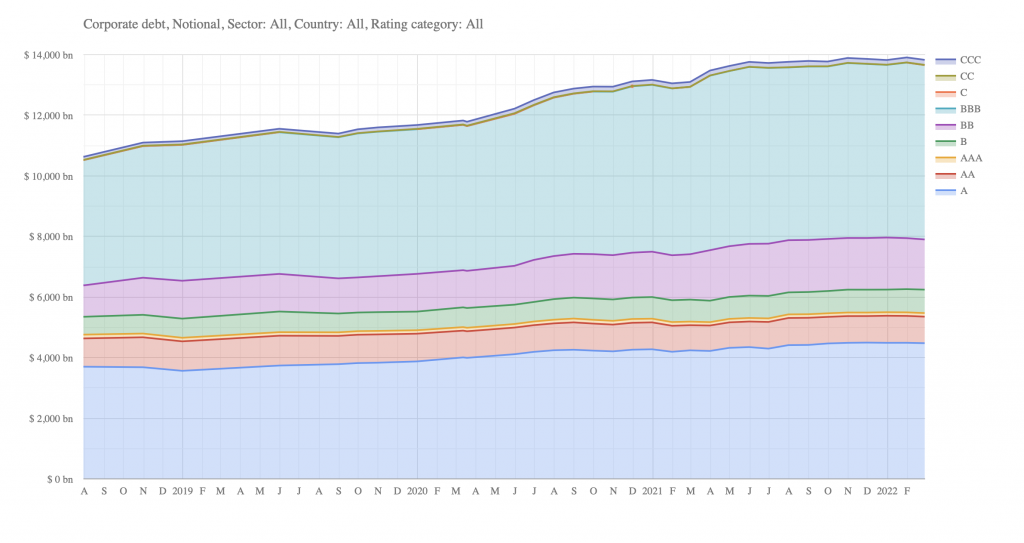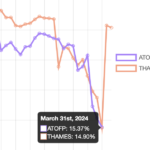Inflation is supposed to be good for corporate bond issuers, because the real value of repayments is eroded. But what if a company’s ability to repay debt from earnings is eroded even faster?
Outstanding corporate bonds increased by a net amount of $1.2 trillion between the start of the pandemic in March 2020 and the end of February 2022, according to a Risky Finance analysis based on Markit iBoxx data. With central banks backstopping the corporate bond market, much of this borrowing was used to reward shareholders via dividends, share buybacks or M&A deals.

During the coming year, these companies will have to pay out roughly the same amount – $1.2 trillion – either in bond principal repayments or interest during the coming year. Principal might be funded with new borrowing, but interest payments will have to come out of earnings.
A few months ago, earnings growth might have been expected to cover any interest coming due for most companies, but that was before Russia’s invasion of Ukraine sent commodity prices skyrocketing. Meanwhile, with central banks now actively raising interest rates to combat inflation, any company that refinances their debt in the next year is going to have to pay higher interest coupons for the privilege.
We can get an idea of the burden using the metric of interest cover – the ratio of earnings before tax versus the total corporate bond interest payments due in the next year. To look at this, we’ve built a new interactive tool for Risky Finance subscribers using the trove of iBoxx data, Taking all non-bank issuers in aggregate, with a total of $11 trillion in outstanding corporate debt, this ratio is around 5.6. This sounds reassuring, with plenty of room for earnings to decline or refinancing costs to rise without much risk to bondholders.
Comments are closed.
 Levelling the Playing Field
Levelling the Playing Field
 Barclays and Labour's growth plan
Barclays and Labour's growth plan
 Plummeting bonds reflect souring UK mood for outsourcing and privatisation
Plummeting bonds reflect souring UK mood for outsourcing and privatisation
 Dimon rolls trading dice with excess capital
Dimon rolls trading dice with excess capital
[…] The coming corporate debt hangover. Outstanding corporate bonds increased by a net amount of $1.2 trillion between the start of the pandemic in March 2020 and the end of February 2022. During the coming year, these companies will have to pay out roughly the same amount – $1.2 trillion – either in bond principal repayments or interest. (Risky Finance) […]